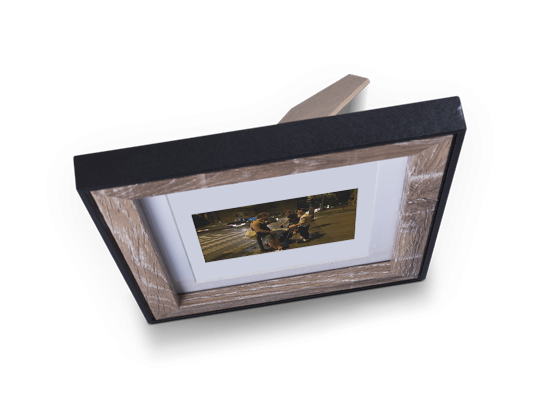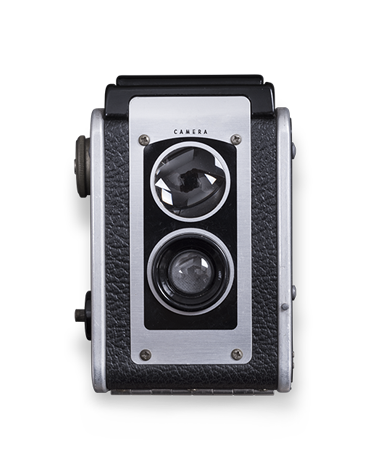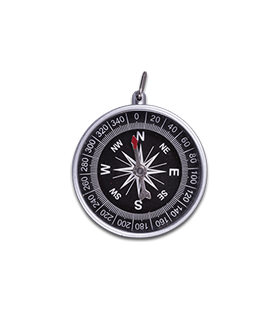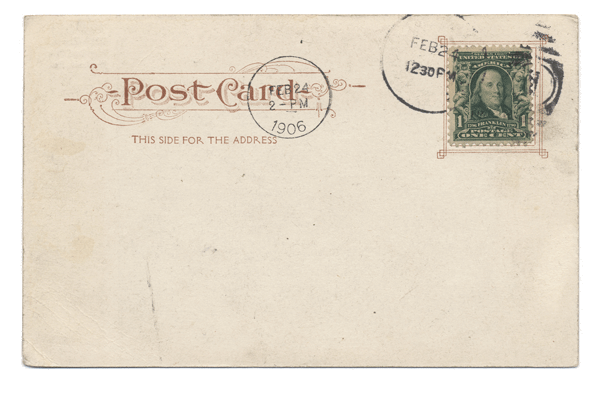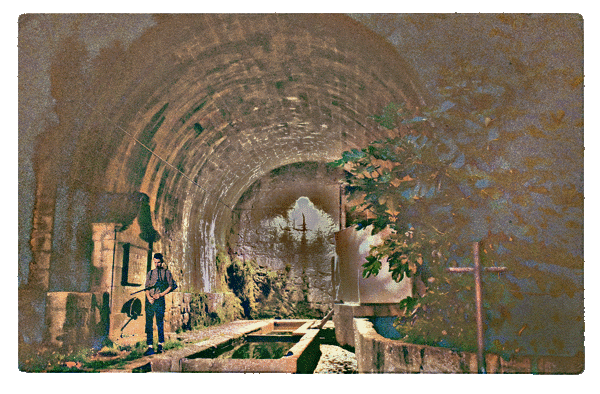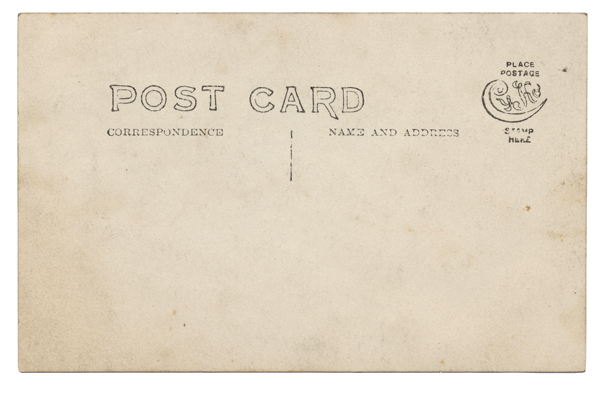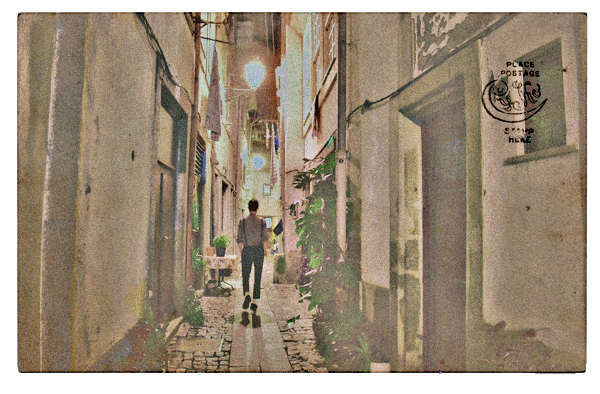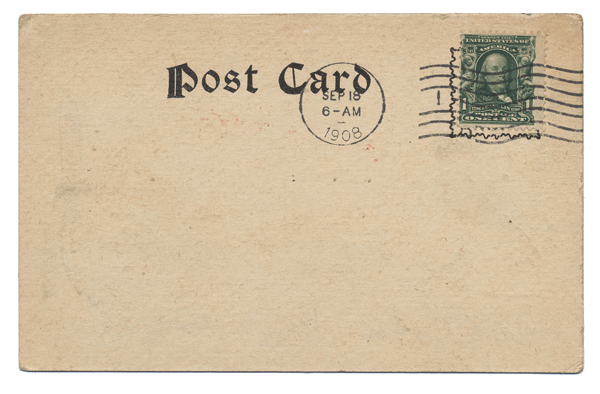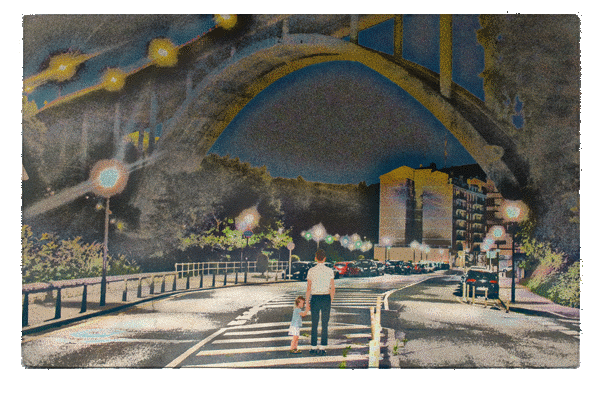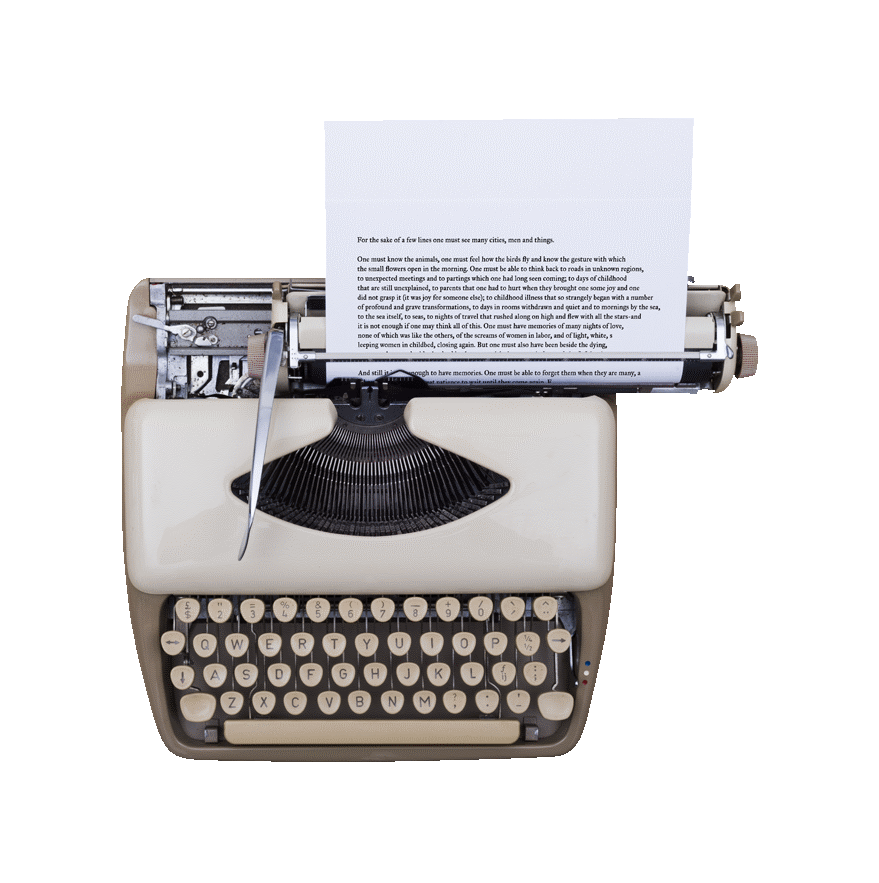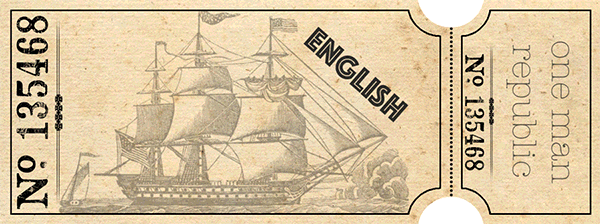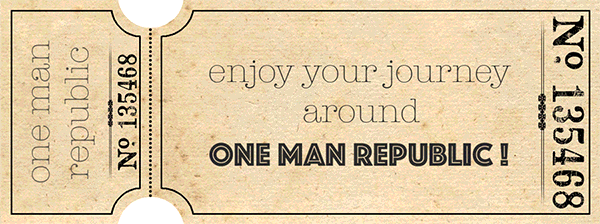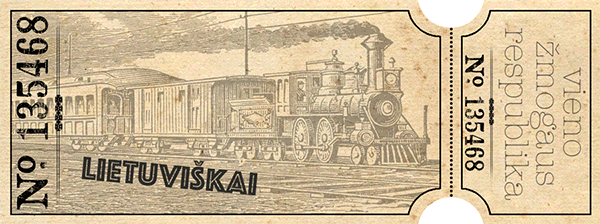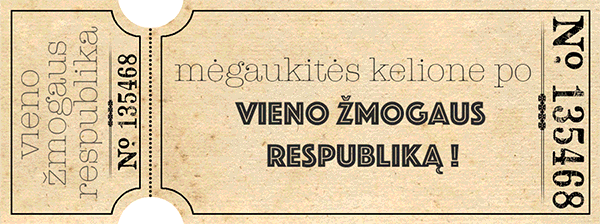the blooming of trains
random sharing

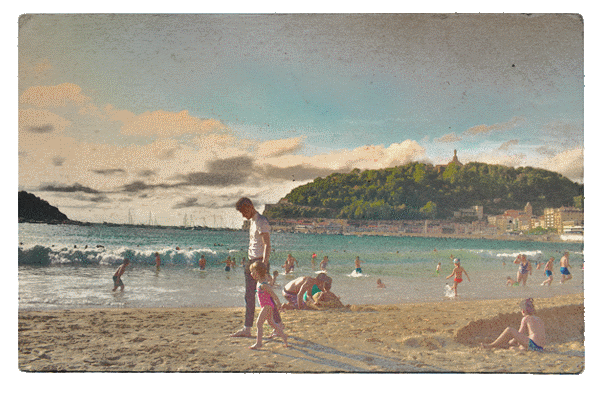
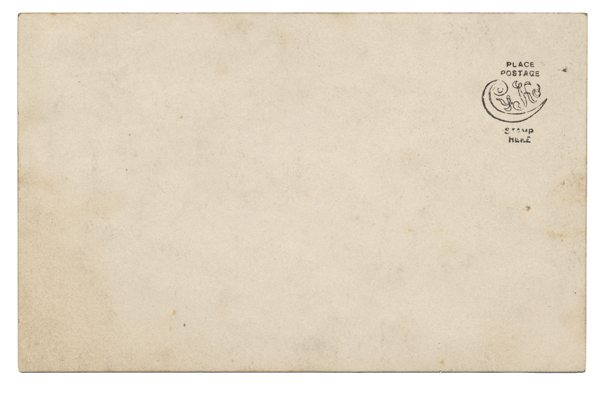
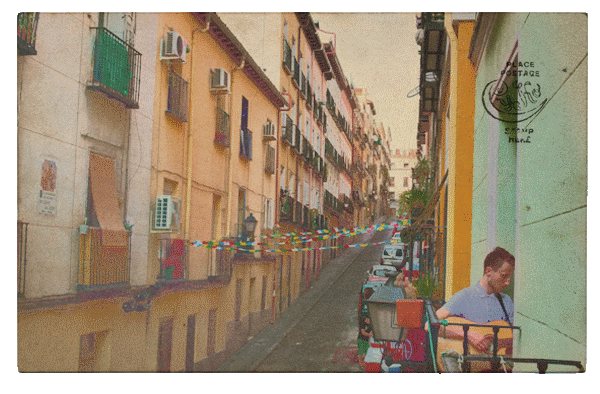
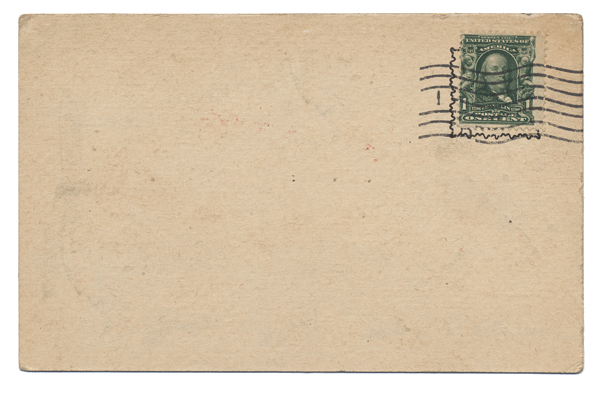
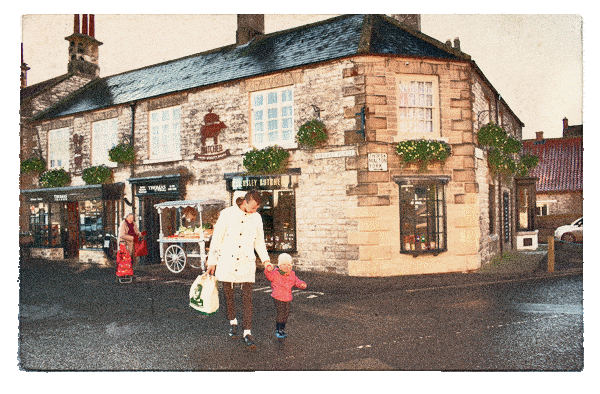

This time, untraditional signs began to lure me back to the road. First, my friend P. needed to interview someone on the subject of traveling for her bachelor’s thesis. Then, the night before my trip, my friend R. invited me to record an interview about hitchhiking for Lithuanian Radio. And although I didn’t have enough time to complete the latter thing, from my thoughts that I told P., the main idea was that ‘the road is a version of life compressed in time’.
In everyday life, my ups don’t just last one day or one moment. And the downs that follow also don’t just come in a minute but are rather the materialization of consistent poor actions. But when I’m on the road, one moment I could be thriving in a newly-conquered place surrounded by like-minded people and with plenty of money in my pockets, and then just a few hours later, I could be sleeping by the bushes or having problems with the police. Such an incredibly rapid change in my situations and the huge amount of information I’m faced with when trying to comprehend different cities and different people, force me to change my perception of time and focus my body on the overflow of information and senses.
Perhaps this is the reason why it’s impossible to travel all of the time. Because sooner or later, your body (both physical and non-physical) will get tired from such a huge load of information, until it eventually begins to ignore its senses or physical signs. Maybe that’s why it’s so fascinating. Because this is a process that you always want to return to after recovering.
Before this trip, I was lucky enough to work at the Lithuanian National Drama Theater, which materialized into a sum of money that was not typical for me. The only way I could possibly have imagined spending it was by investing in myself and in the connection of the neurons in my brain. So I bought an Interrail ticket, which would allow me to take trains all over Europe for a whole month. I also paid for my tuition at Glasgow College of Piping and my tap dance classes at Herrang Dance Camp (Sweden). At the end of June, I was back on the road.
Throughout my previous trips, I had never experienced the true fear of death. I had always felt certain types of danger lurking nearby, but the chilling state that made it unclear whether I was dead or alive, visited me only during this trip. Twice.
I was visited by this state for the first time at the very beginning of my trip. As I arrived in Suwalki, I began to search for a place to sleep because my train was only at about five in the morning. I walked around a residential district and approached a bunch of abandoned factories and garages – I had reached the end of the city. I was surrounded only by fields and a few abandoned buildings. People would occasionally pass by, so I decided not to sleep in the Polish fields. Instead, I chose the roof of a garage, which was about as high as a two-story building. It was insanely difficult but I managed to climb up the roof. Then, I set up my tent, played my bagpipes for a bit, and went to sleep.
When it got dark, a thunderstorm began. I felt especially safe knowing that another person likely wouldn’t manage to climb up this building, and the rain and thunder didn’t intimidate me too much. However, I gradually began to realize the power of lightning. Previously, I had come face-to-face with the mountains, the sea, the cold, but I had never encountered this phenomenon of nature with such fear before.
As I was laying in my tent, I realized that I was the perfect target for lightning – in a radius of about half a kilometer, I made up the only point higher up than the grass. And not just slightly higher up but a good 6-7 meters higher up. Plus, I had plenty of metal objects, not to mention my tent poles. But I wasn’t just going to climb down through the hail, dragging my bagpipes and tent down with me, and sacrificing my sleep on the very first night.
I began to calculate the distance of lightning. At first, even when it hit several kilometers away from me, the thunder sounded absolutely petrifying. And it kept getting closer. 5 seconds between lightning and thunder. 4 seconds. I turned off my phone. 3 seconds. Two seconds. Two seconds. A second and a half. The thunder sounded just like an exploding grenade. Even now, writing about that moment and the state I was in, I still can’t believe what a powerful force of nature lightning really is. The unbelievably real fear of death that it can cause. As I was laying there, I couldn’t even think about the morning because all I wanted at that precise moment was to survive until the next. And I prayed. One second. Then, it calmed down. I quickly went from the state of fear to the state of light sleep. However, not long after, the same process began. 10 seconds… 2 seconds, a second and a half.
Considering how simple and peaceful my life had been until that moment, I definitely shocked my body with such a huge and unexpected load of stress. At night, once the lightning had calmed, I tried to turn on my phone and set an alarm for the morning, but my mind had completely wandered off. I had forgotten all of my passcodes, so I blocked my phone on the very first night. I had to rely on my own body to wake me up on time. Later, the lightning came back. I woke up when it was slightly light out and nervously rushed to the train station because I felt that I had probably overslept. But it turned out that it wasn’t even 4 AM. By then, the fear of death had completely abandoned me and I seemed to have completely forgotten it. Because with a clear mind, I could no longer feel or comprehend it. Of course, this was only until my next encounter with it during this same trip.
I reached Bratislava in the evening. The unconquered city syndrome was clearly there – unknown places, gypsies that kept bothering me, and my not-so-confident walk through the street. It was precisely after my visit to Bratislava that I was able to express the signs that a conquered city must have. But more on that later.
Although it was about 10 PM and almost dark, I decided to play a few songs with my bagpipes once I reached the Old Town. This was supposed to be somewhat of a test to see if I was on the right track and if the world wanted to accept me.
In a narrow street, I closed my eyes and began to play. Within one minute, I felt that a few more people were standing next to me. When I finished the song, the people came up to me, thanked me, and put five euros into my pocket. They turned around and were about to leave but then turned back to me and invited me to join them. When I asked where we were going, they answered that one of the men was the manager of a Scottish pub, which was located in the most popular street in Old Town Bratislava. Once we got there, the men invited me to play a few songs at the entrance of the pub. Soon, I was surrounded by a huge crowd, who clapped to me after every song I played. This confirmed to me that I was moving toward my goal – instead of just a street musician making some background music, I wanted to become a performer of the street (or maybe not just the street), spreading a clear message directly to the people around me. After a few songs, the manager invited me to have a drink in his pub. I asked for some whiskey and he brought us both a glass. He was a bright person and we talked quite a bit. So there you go, this is what it means to compress life in time. One night, all you wish for is to survive, and the next - you’re sent a clear sign that you’re on the right track. You’re just standing in Bratislava drinking whiskey. I didn’t want to take advantage of the man’s kindness, so I went back into the night.
A few days later, Bratislava was officially conquered, which is precisely when the idea of the conquered city list popped up in my head. Of course, it now merely reflects my current period and way of life. But by generalizing this list, I believe that each person can discover their own personal conquered city model:
1. The city accepts you as a musician – you’re allowed to play on the streets and people give money or something else in return for your music.
2. You find a remote and calm place near the city where you can sleep peacefully and without disturbance.
3. You find a cheap store near the city.
4. You begin to find your way around the city geographically.
5. You find a body of water near the city center where you can wash up and wash your clothes.
6. You discover a public park or someplace similar where you can safely take a nap during the day, if certain circumstances prevent you from doing so at night. You can also read and analyze the books that you brought on the trip.
7. You can’t escape the fact that a person is meant to be in society and whatever you do - your goals are always connected with other people in one way or another. So you mostly feel that you’ve conquered the city once you meet like-minded people who you can not only exchange energy with at that moment but also create a connection that will last far into the future. You feel at peace when you leave a city if you feel that city contains ‘branches’ of a right philosophy – people whose philosophy is close to yours:)
This list may seem silly but after all of my trips, I’ve realized that I play my music much more peacefully, think much more clearly, and sense people much more strongly if I check at least a few points off it. Plus, as I’ve mentioned, if you take the conquered city model out of the context of traveling and apply it to a broader period, the points of the model would transform into something more absolute and similar to either the social environment in which you can make your talents and passion for certain areas come to light, the material environment which allows you to reach your goals while conserving as much of your physical energy as possible, and people who represent values similar to those of your own, etc.
Coming back to my trip – the only disappointment from it was that I wasn’t able to conquer Vienna. I felt its energy, I felt its greatness, but after spending just half a day there, I headed off to Switzerland. The situation was simple – I arrived on Friday afternoon and although I would have loved to play some music in the central avenue, you needed a permit for that. I would have gladly bought one because it cost only 7 euros but the institution that issued them was closed until Monday. I realized that without playing my music, I couldn’t possibly conquer the city, so I took an overnight train to Zurich.
Before leaving Lithuania, I had one interesting goal. In my whole life, one of the things that I hated the most was “talking nonsense” with foreigners. Basically, conversations that went like, “hi, how are you, what are you doing, oh yeah, that sounds great, that's cool, nice to meet you, in my country, this word sounds like this, there are two million people in my town…” In my hometown, I’d managed to avoid such conversations for quite a while but whenever I was in another country, I still couldn’t quite stop pretending before myself and others.
Here, I should probably introduce a concept that I’ve created and applied to most conversations I have with my friends. The concept is the Code of Silence. If I haven’t described it to you before, I‘ll do this now using one example. Whenever you meet a first-grader, you tell him, “Hello, I’m Andrius Romaska, what’s your name? How are you?”, to which he answers, “Hello, I’m Petras. I’m doing good.” We’re just straightforward and begin our conversation in the simplest way possible. However, I’m sure you’ve encountered situations where you meet someone and instantly feel that you’ve both read very similar books and experienced similarly powerful and meaningful things. Then, instead of all of the introductions and pretending, neither of you mention all of those experiences and books and instead begin from that stage of communication that is above all of those books and experiences. The sum of these things that you both don’t mention is precisely what I call the code of silence.
Whenever I’d talk to foreigners, I’d lack the courage to obey the code of silence – even if I’d feel, from the very first moment, that the person before me didn’t understand the most essential things and that our conversation surely wasn’t going anywhere, I would still continue to pretend. So during this trip, my application of the code of silence - “avoiding nonsense” and being completely honest, may have made me come off to some people as a weirdo. But occasionally, I would be lucky enough to meet people who perfectly understood the code of silence and would gift me extraordinary brightness. I believe I did so to them as well.
The first time I was awarded this incredible gift for what may at first come off as rude but then proven to be the only correct method of communication was on the overnight train from Vienna to Geneva.
The train was beautifully running along the tracks in the night, surrounded by mountains. But despite how beautiful it was, everyone in the coupe, including me, dozed off. Later that night, the conductor walked around waking people up to see their tickets. A young man about my age bought his ticket straight from the conductor. Half asleep, he pulled out a stack of bills from his pocket. I wasn’t quite awake yet but I quickly lost hope for that young man, not by applying the code of silence but by making a simple social observation.
As it was getting light out, the fellow passengers from my coupe began exiting the train one by one. Eventually, just me and the mentioned young man were left. Soon, he started a conversation. The first few minutes, I was weak – I gave him extremely boring answers just so he would leave me alone. But then, I remembered the promise I had made to myself before this trip. So I quickly broke free of all social constructs and my former state of mind and began giving drastic but sincere responses to him. Beneath all of this were the many powerful books and experiences of my past. The young man caught on to the code of silence and gave me drastic but also bright remarks.
Before long, we began talking about God, how snobbish Swiss people are, the police of our countries, and also some pretty personal things. What stuck most with me was the conversation we had about the police. We agreed on the same view on the police in our countries – once you see officers on the street, you instantly feel unsafe and begin to think, “am I obeying the law, am I not consuming alcohol in public (in Lithuania), do they have the grounds to arrest me…”. Although what we’re supposed to feel is a sense of safety. In theory, at least, this is the main purpose of the police – ensuring safety. I give you this simple conclusion because although I had always felt this feeling of unsafety, I never really thought about it or even realized how deep this thought is embedded into many people’s subconscious, and how wrong it is.
Once we arrived in Zurich, we said to one another that we were both citizens and brothers of the world, hugged, and headed our own ways.
The city was buzzing with some sort of celebration all night. There were literally millions of people, it was a struggle even to get through the widest streets. Music was playing everywhere. I began to worry about how I was going to play my own music. With each street I passed, it became clearer and clearer that playing loud enough to gain attention was mission impossible.
After an hour of wandering around, I finally came across a narrow street where I could begin my performance. Once again, I closed my eyes. I was extremely nervous because I wasn’t sure if street music was even allowed in Switzerland. When I finished the song and opened my eyes, I was surprised to see 20-30 people standing around me and clapping. I went on for about two hours and there were always plenty of people, new bypassers joining in and others leaving, and each person would either applaud me or throw in some money. Once I finished my concert, I counted the money and realized that I had set a new record – 800 litai (former national currency of Lithuania) in just two short hours. I figured that I should be just as lucky in all of Switzerland, so I headed to Bern that same night.
Once I got there, it turned out that I was very wrong. Even though this was the capital of Switzerland, the flows of people in the Old Town were very minimal. However, the city itself was fascinating, so for two days, I just analyzed the books I had brought with me on the trip – The Theory of Random Processes by Alfredas Račkauskas and The Story of Art by Ernst Hans Gombrich. Although the neurons that I had wanted to connect most in my brain were related to tap dancing, singing, Scottish bagpipes, mathematics, literature, and philosophy, I had discovered a new desire in my subconscious over the past few years to get to know more about drawing techniques, the most famous paintings, and the most famous buildings. So for three months, I studied the history of art, which exceeded all of my expectations. Now, I feel much more at peace strolling through the streets appreciating the architecture, and I feel much more pleasure visiting museums. To anyone who isn’t immersed in the waters of art and architecture, I recommend Gombrich for a simple, mundane, but accurate, well-structured, and detailed encounter with art.
I left Bern at 4 AM and it felt like I had just started the trip: I washed up in the river, washed my clothes, bought plenty of food, and the peacefulness of Bern completely calmed my body. Now, I was ready to conquer the giants – Paris, Amsterdam, London, Stockholm… This fueled me up with adrenaline as I was falling asleep on the morning train to the French capital.
I had already walked through the Paris streets before but this time, I remember only one feeling I had as I stepped foot in the city again – fear. I felt the deterrence of the city. Not just because of the increased number of homeless people whose tents surrounded the walls of Louvre, and not because of the increased number of black people in Montmartre who could do God knows what to you in a dark street. Paris had slightly lost its identity. And I’d like to believe that this city is far too powerful for it to stay lost.
I spent half the day marching from the train station toward Montmartre, where I was planning on playing my bagpipes. Just as I had expected, France wasn’t too keen on letting me gain the sympathies and money of people. I received some serious Russian threats from an accordionist for competing with him, and then some sort of priest ran out of a church and made me leave. Finally, I discovered a quiet corner and collected the traditional sum of money for this trip ~30 euros in an hour.
My body and spirit always calm down after I play music. Having captured a minimal piece of many people’s hearts, you become a larger part of the city. Despite the peace that I felt within me, I realized that the next morning, I would already be on a train leaving here. So I bought a bottle of wine at night and headed to the bank of Seine to write a letter to my friend V.
I contemplated until midnight and drank all of my wine. As always - I struggled to write the letter. There were no longer any people around me, so I pulled out my bagpipes and played a song for inspiration. In about 10 minutes, I was approached by three people a bit younger than me, who asked if I was the one who had just played the music. When I said yes, they told me that they heard me when they were sitting on the other side of the river, and told each other, “Let’s go see who that is, he’s either a nut job or “truly something”.
The two guys and one girl were one of the greatest parts of the trip. We just connected. Also, probably for the first time during all of my trips, I felt so strongly that the time had come in my life to pass on to others everything that I had put into myself and learned. To share.
For a good hour, this is how our conversation went: an endless amount of questions coming at me. Only after that hour did I realize how we all must have looked from a distance – a man from a small Eastern European country with the heaviest copy of The Story of Art, hundreds of pages of Random Processes, writing a letter in the middle of the night in Paris, playing his bagpipes by the Seine, and traveling to Glasgow to learn a little more about the art of this instrument. As if this wasn’t enough, he pulls out his tap shoes and can do a full dance right then and there. A truly interesting companion by the Seine.
I had promised myself that there would be no more joints in my life but these nice people had some “amnesia” and there could hardly ever be more perfect circumstances for it. Later, one of them invited us to his apartment in one of the most luxurious districts of Paris. It was a small Parisian apartment in the perfect building. My new friends laughed at me because I took pictures of every single detail – the yard, the stairs, the elevator. To me, it felt like I had been photographing the best possible scenography for a movie. In the apartment, the joint went around with Devendra Banhart playing in the background. As it turned out, my friends were going to his concert in a few days but unfortunately, I was running out of time, so I couldn’t wait a few more days for the concert. But one day, I would surely visit Devendra.
In the early morning, we got a taxi and headed to the train station where I was to continue my journey. As I gazed through the car window, my body refused to comprehend what had just happened – you come to Paris, earn your own spot there, earn 30 euros in an hour, drink some wine, inspire people to travel through life, take some amnesia, listen to Devendra in an apartment, and then like a true champion, get a free ride to the train station in the early morning. We hugged when we arrived and then parted ways. Later, I wrote to them in a letter – to most people, even those that I’ve known and communicated with daily for four years, I refer to as merely “someone I know”. But with them, after just one night of getting to know each other, I can proudly begin my letter by addressing them as “My Friends”.
Next stop - Amsterdam. Indeed, the body must be strong to be able to leave all the lights behind after just one or a few days, then step into a huge new space and prepare yourself once again to sincerely and openly devote your whole self to a city. Perhaps this is the reason why I had the tradition throughout the trip to spend my last moments in a conquered city in solitude, reminiscing on and absorbing all of the beautiful moments I was given there.
I thought that perhaps, if I conquered Amsterdam, instead of all of the solitude, I would try some “brownies” or “muffins” for the first time ever. However, after a few days in the Dutch capital, I felt how tired and dark I had begun to feel from the women behind the glass, the brownies, and the green leaves. I was mostly shocked during the last night in Amsterdam when I was setting up my tent next to a dog walking area. A man who was walking his dog there approached me and told me to be careful because apparently, the police often patroled by at night and gave out huge fines to people like me. Somewhat surprised, I told him that I was just setting up my tent on some cement in an incredibly remote spot where there were barely any bypassers and that I wasn’t breaking any rules or causing anyone any negative emotions. The man explained to me that the police fines even those who fall asleep in their cars, so they definitely didn’t play nice with the “tenters”. As he walked away, I realized that humanity was definitely going in the right direction – women behind the glass and drugs were all nice and bright, but primal natural life is all dark. ‘Suits me perfectly’.
Nevertheless, dark emotions weren’t all that I left Amsterdam with – I conquered this city, which, despite the things I just mentioned, is truly fascinating.
But even Paris and Amsterdam seemed like merely a small rehearsal before London, which I was taking ferries and trains to get to. I was supposed to reach it and begin my conquest at the most difficult time possible – Friday night. I was anxious at the thought of how many more “conquerers” like me there already were there, and how they were viewed by others. At the thought of how I was going to search for a place to sleep on a Friday night with all of my things, in the middle of a drunk crowd.
At Liverpool Street Station, I found a map and looked for some green plots. I found two of them on the map, so I began to wander around the Liverpool Street Station area searching for a nice green plot for the night. Unfortunately, it was impossible to sleep in these places, so I returned to the station at midnight.
To drift off from my London adventures a bit, let me mention one simple principle of life – you are what you do. For example, if you’ve been playing basketball for 20 years, then you’re a basketball player with lots of skill in the sport. Something that I’ve been doing pretty much since I was a kid is searching for places to sleep or just get inspired during my trips. I never really noticed how good I had gotten at this and how well I had developed my senses for it. Sometimes, I walk around and find a place that may seem to be suitable for gaining some inspiration or just taking a nap but at the same time, I feel with my whole body that there’s a spot for me that’s not only suitable but incredible and perfect for me. And almost always, I find such a place, if I don’t give in to the persuasions of the mere “suitable” places, urging me to stay there. It’s just like in life – you either give in to the persuasions to drift away from your path, or you guide yourself where you are supposed to go.
So that night in London, I felt that my place was hiding somewhere nearby. I glanced at the map once more and spotted a tiny green dot at the edge of the map, right next to a church – subconsciously, I had no doubt that this was my place. It was a very small gated park next to a church. I sat down on a bench and saw how people would occasionally pass by. I decided to just squat there. I closed the gates of the park and hung a lock on them to make it look like the park was closed for the night. Then, I calmly went behind a statue and had a nice four hours of sleep in my own occupied park on a Friday night in London.
In the morning, I went on to explore the giant. Several things should be mentioned.
In the middle of the day, I took a nice nap beneath the sun in a small park near South Bank, which was packed with people. I woke up to a young man in front of me with a guitar. He was giving off great energetics. I could tell that just like me, he was trying to conquer London. We were just about to begin a conversation when two not-so-nicely looking men approached him and started asking him what he was doing in London and how long he was already here. I turned away from them for a bit and suddenly saw behind the park gates that the two men were already putting the young man’s things into their also not-so-nicely looking car, and the young man himself was also getting into the car. About a minute later, they came up to me and asked if I needed a job. Not only because of the negative energy that they were giving off but also because of common sense, I knew that the job they were offering would end up with them taking away my passport and turning me into a slave in the London area. Of course, I declined and left. Oh, London.
A bit later, on a bridge to South Bank, I began my performance. I had never played for such a cold crowd before – I received absolutely no reaction from people. No connection. And although I did manage to collect a somewhat decent amount of money – about 10 pounds in 45 minutes, the money appeared in my guitar case just as mere pieces of metal, without any facial expressions or emotions from the people running by.
I sat down on some stairs I found nearby. London was the perfect place to try out an experiment from a book by Carlos Castaneda (if I remember correctly - it was the book Tales of Power). Although there are lots of people who view him negatively, calling him a storyteller or something similar, I personally have “extracted” many essential thoughts from his books.
Carlos and his teacher Don Juan were once sitting in the park of a large city, watching bypassers and waiting for someone with a good tonal to walk by. Tonal, roughly speaking, is everything that a person’s mundane form consists of – the body, thoughts, mind, etc. If you’re not blocking yourself, it’s easy to see if your tonal is good or bad. It took until dark for them to find such a person.
So I sat down in South Bank, where there were huge flows of people, and just watched them. To my surprise, not a single person with a good tonal walked by for ten minutes. There were two men in suits that had clearly worked on themselves in the past but now, they had abandoned themselves quite a bit.
Of course, the observations I made were certainly not based on social things – looks, facial expressions, clothing. Finally, I found what I had been waiting for after about 20 minutes. In the distance, I saw a dark-skinned woman pass by. If you were blocking yourself, you probably wouldn’t exclude her from the crowd. Maybe you’d even find some negative traits in her. But to me, it was clear that her tonal was good. She sat down a bit further away from me. I continued to observe the people walking by.
And guess what? Five minutes later, the woman approaches me (if you’re someone who always looks for social explanations, there isn’t one here: the woman was sitting far away from me, our eyes didn’t meet, I didn’t stand out from the crowd in any way, and there were at least a hundred people between us). She tells me that she noticed I was thinking hard about something. Without hesitation, I tell her exactly what I was doing. She, of course, catches on to the code of silence and we talk openly for about twenty minutes. Finally, her friend comes up to her and it’s time for them to go to some sort of fashion show. But before she goes, she asks permission, takes my hand, says a quick prayer wishing me good travels, and heads her own way. I believe there’s nothing more to add.
A treat was waiting for me in the evening – the first Lithuanian on the road. R., who was studying at UCL and living in the United Kingdom, and I stayed up all night drinking wine, beer, and discussing important thoughts.
In the morning, our paths parted ways - I’m guessing for quite some time, and I headed to the North of the island. I still had a whole day until my studies at the Collefe of Piping, so I chose to travel to Northern Scotland – to Loch Lomond Lake (of course, the word Loch already means “lake” in Scottish, so I should probably just say Lake Lomond). This is where I came face-to-face with the fear of death once again.
There’s one thing I’ve noticed when people talk about death – even when speaking from your own experience, it seems that you’re exaggerating how close you were to it. After all, you survived, so how could there possibly have been the danger of dying? Perhaps this is why people just brush-off any hint that their loved ones may be giving off about suicide – if you’re alive now, then how can death possibly be so close to you? Nevertheless, in my case, I can clearly remember how it felt to have death lurking right around the corner, despite how absurd it may sound now.
When I arrived at the Balloch train station, I decided to head to the mountains I saw far in the horizon. I thought I’d make a fire, sleep, and film myself playing a Scottish bagpipes tune. After about 15 kilometers of hiking, I decided to turn away from the official trail and started climbing the mountain. As I began climbing, I had to cross several barbed wires because there were lots of sheep and bulls by the mountains. When they saw me, they reacted as if I was a wolf and began running away from me and gathering together. For some reason, I decided to pull out my camera and take a picture.
Once I did this, I noticed that the bulls were slowly getting closer and closer to me. At this point, I was just calmly packing up my camera. But then, things escalated quickly – about eight bulls began running at me. I grabbed my backpack and guitar case with my bagpipe inside and ran for my life toward the barbed wire. I tossed my stuff, jumped over, and then turned around to see that the bulls hadn’t slowed their pace at all and were still running at me. I saw some other animals in front of me, so I figured that those might be calves that the bulls were running to protect. My heart was about to jump out of my chest. It would be no problem at all for the bulls to rip through that wire. I left my stuff and jumped on the wooden fence to the forest and looked back again – the bulls had stopped right by the wire. Completely shaking, I picked up my things, climbed over the wooden fence, and decided to hike through the bushes and forests to get to the top of the mountain.
Suddenly, a wolf or wild dog jumped out of the bushes. I jumped back over the fence. Then, just like an animal completely fearing for its life, I sprinted to the trail through the fields. After somehow managing to get over all of the fences, I stood, still completely trembling, on the cement, thinking that if those bulls had gotten to me, then this evening would mark an end to me and all of my stories. Not to mention my encounter with the dogs/wolves.
I walked back 5 kilometers until I reached the hotel on the bank of Loch Lomond, then I pulled out my sleeping bag and fell asleep, peacefully knowing that I was surrounded by people, not animals.
I spent the next week in a charming little routine. I felt completely at peace – I went to college every morning – I’d lock myself up in a small isolated room and play the bagpipes, and if something wasn’t clear - I’d call the teacher and figure things out. Then in the evening, I’d communicate with my inner self, read the books I’d brought on the trip while wandering around Glasgow, and finally - I’d go to bed super early each night at the hotel, to make up for the hours of sleep I had lost previously during the trip. Yeah yeah, I stayed at a hotel for the first time during my trips. And for a whole week. Initially, I only planned on staying there for a few days but it was just too charming to leave.
If you’re wondering about the college I went to - I was able to gain inspiration and learn a lot about bagpipes and different techniques from Scottish elders. On the last day, I took level 1 exams, which I was nervous about for the whole week. For the practical part, I just had to play two pieces from memory but exactly what I was worried might happen, happened. Once I arrived, I received remarks that I had taken on a lot of bad habits while self-teaching, so I had to learn each piece all over again and exchange my bad habits for the right ones. Nevertheless, I still managed to pass my exam, so after thanking the elders and colleagues, I said farewell.
I should mention one more phenomenon from the summer, which I had heard about before but as someone from a small and pretty socially weak country, I hadn’t experienced yet.
I reached London late at night and decided not to stay another night and instead go to Harwich Port and look for a place to sleep there. However, the train that was supposed to be my first one toward Harwich only left at about 10:50 PM because of some sort of emergency that had happened in the train bathroom twenty minutes before. So I wasn’t going to make it to the other train that was supposed to take me to Harwich. There were about ten more people that had the same problem.
So once the ten of us got off of the late train in a town called Colchester, there were 6 - 7 fancy black taxis waiting for us and one or two of us got into each car. It felt great flying through the dark English streets, although I couldn’t shake the thought that we were about to get into an accident because we were driving in the opposite lane.
I was taken right to the front door of the port. The taximeter showed the amount of more than 50 pounds but of course, it wasn’t me who was paying - it was British Railways. I had a short conversation with the driver, who was a Pakistani immigrant, and I was soon crawling into my sleeping bag on some grass in the port area.
I had heard before from Lithuanian emigrants that such cooperation of taxis and railways was a common phenomenon but to me, this was very unusual and I was fascinated at how prompt and professional the employees were.
One evening, as I was on a train headed North of Europe, I got into a coupe where there was only one man. I could tell that he began smiling inside when he saw me. I instantly felt that this person’s code of silence was undoubtedly high. Subconsciously, I also had no doubt that sooner or later, we would start a conversation.
After a good hour, he spoke to me. I immediately put all formalities aside and went for something strong instead. Of course, he caught on and said something strong back. We talked about my idea of connecting as many neurons in my brain as possible by improving myself in dance, music, mathematics, philosophy, and sports. About my attempts to get closer to the ideal Martin Eden way of life.
My companion told me that he studied the classical guitar professionally for many years and then started office work related to music. At the time of our conversation, he was head of the German Choir Association. Our conversation kept going and going until I was asked off of the train because it was almost night time and I hadn’t registered to spend the night on the train. You don’t always need to make a reservation but in this case, all spots for the night were taken, so I had to get off of the train in Cologne when it was already dark. We thanked each other for our long chat. He promised to mention me on his website. I promised the same.
What a gift is to quietly accumulate energy within yourself for several days, then share it with a worthy person, and receive brightness from him in exchange. I sat by the Cologne Cathedral (which, if not the most, was one of the most fascinating architectural monuments from this whole trip) refreshed and happy.
I reached Copenhagen with a very quiet heart. I had spent quite some time there during the previous summer, so I knew it quite well and felt as if I had arrived in a second home. You always feel safe there. Suddenly, the idea for an experiment sparked in my head.
I decided to play on the street for as long as I possibly could, without changing my spot - even if someone threatened to call the police or tried to get rid of me because of competition or any other reason, which would often and will often happen on the road. Even taking a trip to the police station would be a truly fascinating entry in my travel CV, I thought.
So my first evening there, I began my performance on Copenhagen’s main pedestrian street. I wasn’t at all surprised when a few minutes in, an unhappy woman ran out of one of the nearby buildings and tried to make me leave. I heard her out and then told her to leave me alone. Then, something unprecedented happened – the owner of the cafe across the street (he seemed Italian) approached me and asked me what that woman wanted. After I told him, he said that Danish people are sick and lose a lot from being blinded by their own money and repelling every single person around them. He then told me that if anyone else bothered me, to go find him. So for the very first time during my trips, I found my own “roof” on the streets:)
I continued my performance and then the same woman runs up to me with a stack of papers. The cafe owner sees this and comes to defend me but after a long discussion with the woman, he tells me that I’d have to leave after all because the papers the woman brought were of Danish law regarding street music and it clearly says that you can only play acoustic music on the streets from 5 PM to 8 PM, at least a few meters (I can’t remember exactly how many) away from the shops and cafes. Since it was already 9 PM, I thanked my hero from the cafe and headed my own way. Tomorrow, I would follow the law and go all the way.
So at 5 PM the next day, I was standing at one of the most popular spots in the same pedestrian street and began my performance. A few minutes later, the worker from an underground bathroom comes up to me and says, “oh, no way you’re playing here, I can’t hear my radio”. I told him that the only way that I wouldn’t play here was if the police dragged me away by my feet. The worker told me that he would call the police shortly and I would not only be dragged away but also added “to the black papers”, so I would never be able to come to Denmark again. What a comic situation. Of course, I kept my head high and continued my performance.
I was doing great – I really got into the music and money kept coming to me. A young Danish man came up to me and said, “this is sick”. In this case, “sick” was said in a positive way. He put a huge bill in my pants. After a good half an hour, a new opponent approached me. A guard from the Louis Vuitton store came and politely explained to me that I was making it difficult for their clients to communicate with the sales assistants, so I should move to another place. I explained to him that I wasn’t violating any Danish laws and I would move only if the police dragged me away, and in this case, I didn’t even see any point in moving because the store was closing in 15 minutes. He said that he understood my position but would still have to call the police.
I played for another 15 minutes, watching the unhappy Louis Vuitton guards behind the glass of their store showing me gestures that it was about to be over for me:) In 15 minutes, I felt a hand on my shoulder. A G4S crew was called to get rid of the bagpiper. For a few minutes, I explained to the young guard what I had been telling everyone else, and he also said that he would call the police. I played another few pieces and then another G4S crew was called. One guard from this crew was extremely strict and clearly experienced. For about 10 minutes, I kept explaining to him that I wasn’t breaking any laws, but then he just grabbed my bagpipes and told me that there was no way he would allow me to continue. The situation got even funnier when the same comic woman from the other day ran over to us and began telling the guards what a wicked man they were dealing with.
Eventually, one experienced street musician that I had met the night before came up to us and told me that he understood me but in this case, it’s best to end everything without any more conflict. The two of us began to discuss street music, while the guards stood by my bagpipes and waited for about 5 minutes until we were done with our conversation and I finally left so that they could give themselves a big plus in their file for solving a problem. Once I finished my conversation, I calmly pulled out my camera and began to photograph the angry guard, telling him that I would send his picture to the police. I instantly saw panic in his eyes and he began to cover his face and try to pull out his own phone to take pictures of me.
Nevertheless, I realized that my actions were more similar to hooliganism and no longer just defending my own rights, so I said farewell to the guards and went on to celebrate my last night in again-conquered Copenhagen with my 300 kroons earned in an hour.
So those were the somewhat silly games that I played during my stay in Denmark. But it was time to forget all of that once again – because Stockholm was awaiting. Just like always, I was nervous before my encounter with such a giant, especially since it was getting more and more cloudy. At the station, I sat down by a computer for the first time in a while to pay for my tap dance classes. As I was browsing the web, I found some comments, though already several years old, saying that because of the elected radical politicians, anyone who tries to do street music in Stockholm is quickly arrested by the police and deported from the country. I was certainly not delighted to read such comments, although they did seem pretty unrealistic.
Nevertheless, I ended up falling deeply in love with Stockholm – music kept on flowing, money kept on coming, and in the evening, by relying on my senses to find a place to sleep, I find some rocks almost in the center of Stockholm with a beautiful view of the city. Tomorrow, after another successful day of performing, I experienced one of the greatest physical, spiritual pleasures throughout the whole trip – as the sun was setting, I went down to the bottom of those same rocks, washed up, washed my clothes, sat down in the chair that was already there, relaxed, made a fire, cooked some sausages, looked far into the nightly Stockholm lights, and bundled up in my sleeping bag as the water murmured in my ears. There’s not much point in trying to describe how I felt back then. I just remember having an incredible feeling and an idea dictated to me by my own mind – to stay in Stockholm all summer once I’m done in Herrang. After all, I was earning 100-200 litas an hour and could spend all of my nights on these beautiful rocks.
Apart from all of the beauties of Sweden, I should also mention some funny moments from hitchhiking. Since Herrang is 100 kilometers from Stockholm, I decided to get there in the old fashioned way - by sticking my thumb up. Of course, I would be naive to expect that in countries like the UK, Denmark, and Sweden, hitchhiking was seen by the locals as a normal and not at all crazy phenomenon. Nevertheless, the events that occurred that night, 10 kilometers from the Swedish capital, were still pretty funny.
I stuck my thumb out on the highway and held out a piece of paper with the name of the town I was headed to. Nobody stopped. There was a yellow taxi on the other side of the highway going in the opposite direction and once he saw me, he slowed down and without me even asking, began to gesture to me that he would give me a ride. A few minutes later, the car was in my lane and drove up to me. He opens the door, asks if I’m alone and what direction the town I’m going to is, and then says, “oh, it’s quite a long way but I know how to get there”. I ask him if he was even going in that direction because he turned around just to get to me, and he answers, “yes, yes I am”. Finally, 5 minutes into our conversation, he tells me using both words and gestures that, “it’ll cost quite a bit”. And the moment he finds out that I was never planning on paying him anything, he waves his finger by his head, showing me how crazy I am, and drives off.
Soon, another taxi stops in front of me and I immediately show him that I’m hitchhiking, not looking for a taxi. He also seems shocked and tells me, "No no this in Sweden. No. Hard hard". It was intriguing to see how differently countries could perceive such a seemingly simple thing. I was getting more and more tired after a whole day of walking and was definitely not up to walking around the area looking for a place to sleep. But the more time passed, the more likely it seemed that I would have to, especially after the fun encounters with the taxi drivers.
Eventually, a young family with a newborn stopped for me and promised to drive me about 15 kilometers, which is when they would have to turn off the road. Throughout the trip, they kept on looking at the map trying to figure out a mutually beneficial solution because they were already supposed to turn off the road. Later, they once again had to turn off the road but kept going my way. And again. It was getting dark fast, so they drove an extra 50 kilometers just for me. We arrived in Herrang when it was already dark. I took a picture of the family, we hugged, and I headed my own way, to the water, further away from the bustling dance camp.
If you haven’t heard about Herrang before, in short, it’s the largest jazz dance camp in the world. The most popular dance, which attracts thousands of people to this remote corner, is lindy hop. It is a partner dance with swing music. But there are several other jazz dances in Herrang, including tap dance.
Speaking of the lindy hop subculture, it’s safe to say that I feel that it keeps driving me away from myself and most people who are into it. One good reason for this is my incredibly cautious view of all organizations and subcultures.
Perhaps the person to describe them most appropriately was Russian mystic Vadim Zeland, who stated that all organizations are mere pendulums, attempting to capture more people in the amplitude of their own swinging. And of course, once it captures you, you make it much heavier and the inertia causes it to swing even faster, making it possible for it to capture more and more people for its own goals.
I myself have traveled through many organizations and communities and of course, I understand that it might be inevitable and sometimes crucial because as I mentioned before – people were created to be in communities. However, organizations must always be used to achieve your goals. And the most important thing to remember, which most people don’t understand, is that this is possible only in the short term. You might not notice when you cross the boundary where the organization is no longer your guide and helper but you’re rather absorbed by the organization and it uses you to achieve its own goals, distancing you more and more from your true nature. And remember, an organization is a powerful structure – it will definitely notice the slightest opportunity to take advantage of you.
If an outright lindy hopper were reading my thoughts, they’d say that this dance has nothing in common with these philosophies of mine - it brings nothing but joy. That same lindy hopper would keep telling me other subjective, non-contextual thoughts that I’ve already heard thousands of times before. This is exactly where my main point is – whenever I meet a lindy hopper on the street or at some bar or cafe, after a mere 5 minutes of conversation, I realize that I’m speaking not with them but with the facts of lindy hop, the age of the dance’s popularity, and the god of lindy hop, Frankie Manning. For those 5 minutes, I simply could not see any personality or uniqueness in that person.
You may disagree with me in saying that any person who discovers something that they like - not necessarily lindy hop, they completely immerse themselves in it and begin to speak its language. I believe that this shows how strong a person can be in distancing themselves from the social constructs surrounding them. If you are able to understand the human-to-human connection and stand in front of someone completely naked, leaving all of your skills, social thoughts, and attitudes behind (but of course, always being ready to use them in case they’re needed in that connection) – then you are very strong because you are above all of these social constructs. If you connect with someone personally, thinking that the whole world is ruled by a certain subculture or anything else that plays a big role in your life, this will lead you nowhere. Because a person like this becomes more and more influenced by social constructs and at the same time, taken advantage of by the pendulums described by Zeland.
Nevertheless, the reason I was going to Herrang was not to meet even more lindy hoppers but rather to improve my Tap Dance skills. My daily schedule was simple – three 70-minute classes of pure Tap and breaks in between. After my first class with an 80-year-old instructor, I figured out that my chances of survival were at an all-time low:) This is actually where the difference between the popularity of Tap Dance and lindy hop cultures lies – during lindy hop classes, in addition to learning new moves and routines, you just feel happy because you dance with a partner and get to hear some fun music, so the classes don’t seem so exhausting. In a Tap Dance, on the other hand, you have to repeat the moves during classes or just alone in a dark room thousands of times until you begin to properly learn them. Finally, only after many hours do you experience that true, unbelievable satisfaction of having those same moves naturally flow from your subconscious into the real world during your improvisations.
Each day after my three lessons, I would go lie down at the beach. I am extremely grateful to the few people who I had the chance to have smart, beautiful, and strong conversations with, nothing like those you’d usually have with people from this subculture: G. - the only Lithuanian teaching at Herrang, L. - a rational Cambridge mathematics graduate, and R. - a member of the Lithuanian Catholic Federation Ateitis. At the end of the week, I had some fun getting to know Swiss-Lithuanian V. and singing and playing the ukulele together. He would keep telling me about various jazz keys, while I would keep telling him that none of this mattered and what mattered was singing and playing from the heart and being sincere. Our music reflected what was truly important, as is the case in the context of most of the world’s music.
All I really wanted from my teachers was to learn how to tap dance. But I never would have expected to meet so many incredibly inspiring people there. It would be sinful not to mention brother and sister Josette and Joseph Wiggans and tell you how much of a miracle on earth they truly were in the senses of dance and purity. At the end of the week, just like a schoolkid, I wrote them a bright letter to express at least some of my gratitude and admiration for them.
I had to buy a ferry ticket to Riga, so the same Swiss-Lithuanian I mentioned earlier let me use the internet. I was surprised when V. told me that he hadn’t been to Lithuania for half a year already, so he didn’t understand me when I said that the 5-6 weeks of this trip was a long period for me. Well, I didn’t see the point in explaining to him that in his case, he was living a settled life in Switzerland, and in my case, I was compressing life on the road.
On the ferry, I got into a cabin with two Lithuanians: a 17-18-year-old young man from a small Lithuanian town who emigrated to Sweden with his family, and an older man from Šiauliai, who was working in construction in Sweden. At first, I was sure that I would avoid them and go read my books with a nice view of the sea, as far away from them as possible. But then, I thought more about the situation and felt how fascinating it actually was – three Lithuanians from different generations, in a tiny cabin under the sea. The three of us drank a whole box of beer together, talked about our different views, and then all went to the traditional ferry pop disco. It definitely wasn’t my type of place but it felt great to take in the fascinating senses of the night from things that you almost never do and people that you would have never even crossed paths with.
Later that night, I went out to the deck of the ship to get some fresh air and remembered the tragedy of MS Estonia. I hadn’t read much about it but for the rest of the night, I felt with my whole body what a strong and powerful experience it must have been for those people. When I got home, I watched all of the documentaries, shows, read all of the different theories, articles, and interviews from survivors, related to Estonia. It was a very mysterious event. After reading all of the evidence and arguments, it’s clear as day that the reasons indicated in the official report were not what truly caused the ferry’s sinking.
As we were returning to our tiny cabin, the eldest Lithuanian said that his taxi driver friend was coming to pick him up in the morning and take him to Šiauliai, so he promised to take me along for free. So the next day, I was already in the Šiauliai train station.
Now, just as right after the trip, I can still feel how purposeful it was. What I found to be most fascinating was that I did not lose any freedom whatsoever, despite how purposeful the trip was. As it turns out, the more purpose there is in a trip, the more freedom and adventures you get. I bloomed through the trains.

This time, untraditional signs began to lure me back to the road. First, my friend P. needed to interview someone on the subject of traveling for her bachelor’s thesis. Then, the night before my trip, my friend R. invited me to record an interview about hitchhiking for Lithuanian Radio. And although I didn’t have enough time to complete the latter thing, from my thoughts that I told P., the main idea was that ‘the road is a version of life compressed in time’.
In everyday life, my ups don’t just last one day or one moment. And the downs that follow also don’t just come in a minute but are rather the materialization of consistent poor actions. But when I’m on the road, one moment I could be thriving in a newly-conquered place surrounded by like-minded people and with plenty of money in my pockets, and then just a few hours later, I could be sleeping by the bushes or having problems with the police. Such an incredibly rapid change in my situations and the huge amount of information I’m faced with when trying to comprehend different cities and different people, force me to change my perception of time and focus my body on the overflow of information and senses.
Perhaps this is the reason why it’s impossible to travel all of the time. Because sooner or later, your body (both physical and non-physical) will get tired from such a huge load of information, until it eventually begins to ignore its senses or physical signs. Maybe that’s why it’s so fascinating. Because this is a process that you always want to return to after recovering.
Before this trip, I was lucky enough to work at the Lithuanian National Drama Theater, which materialized into a sum of money that was not typical for me. The only way I could possibly have imagined spending it was by investing in myself and in the connection of the neurons in my brain. So I bought an Interrail ticket, which would allow me to take trains all over Europe for a whole month. I also paid for my tuition at Glasgow College of Piping and my tap dance classes at Herrang Dance Camp (Sweden). At the end of June, I was back on the road.
Throughout my previous trips, I had never experienced the true fear of death. I had always felt certain types of danger lurking nearby, but the chilling state that made it unclear whether I was dead or alive, visited me only during this trip. Twice.
I was visited by this state for the first time at the very beginning of my trip. As I arrived in Suwalki, I began to search for a place to sleep because my train was only at about five in the morning. I walked around a residential district and approached a bunch of abandoned factories and garages – I had reached the end of the city. I was surrounded only by fields and a few abandoned buildings. People would occasionally pass by, so I decided not to sleep in the Polish fields. Instead, I chose the roof of a garage, which was about as high as a two-story building. It was insanely difficult but I managed to climb up the roof. Then, I set up my tent, played my bagpipes for a bit, and went to sleep.
When it got dark, a thunderstorm began. I felt especially safe knowing that another person likely wouldn’t manage to climb up this building, and the rain and thunder didn’t intimidate me too much. However, I gradually began to realize the power of lightning. Previously, I had come face-to-face with the mountains, the sea, the cold, but I had never encountered this phenomenon of nature with such fear before.
As I was laying in my tent, I realized that I was the perfect target for lightning – in a radius of about half a kilometer, I made up the only point higher up than the grass. And not just slightly higher up but a good 6-7 meters higher up. Plus, I had plenty of metal objects, not to mention my tent poles. But I wasn’t just going to climb down through the hail, dragging my bagpipes and tent down with me, and sacrificing my sleep on the very first night.
I began to calculate the distance of lightning. At first, even when it hit several kilometers away from me, the thunder sounded absolutely petrifying. And it kept getting closer. 5 seconds between lightning and thunder. 4 seconds. I turned off my phone. 3 seconds. Two seconds. Two seconds. A second and a half. The thunder sounded just like an exploding grenade. Even now, writing about that moment and the state I was in, I still can’t believe what a powerful force of nature lightning really is. The unbelievably real fear of death that it can cause. As I was laying there, I couldn’t even think about the morning because all I wanted at that precise moment was to survive until the next. And I prayed. One second. Then, it calmed down. I quickly went from the state of fear to the state of light sleep. However, not long after, the same process began. 10 seconds… 2 seconds, a second and a half.
Considering how simple and peaceful my life had been until that moment, I definitely shocked my body with such a huge and unexpected load of stress. At night, once the lightning had calmed, I tried to turn on my phone and set an alarm for the morning, but my mind had completely wandered off. I had forgotten all of my passcodes, so I blocked my phone on the very first night. I had to rely on my own body to wake me up on time. Later, the lightning came back. I woke up when it was slightly light out and nervously rushed to the train station because I felt that I had probably overslept. But it turned out that it wasn’t even 4 AM. By then, the fear of death had completely abandoned me and I seemed to have completely forgotten it. Because with a clear mind, I could no longer feel or comprehend it. Of course, this was only until my next encounter with it during this same trip.
I reached Bratislava in the evening. The unconquered city syndrome was clearly there – unknown places, gypsies that kept bothering me, and my not-so-confident walk through the street. It was precisely after my visit to Bratislava that I was able to express the signs that a conquered city must have. But more on that later.
Although it was about 10 PM and almost dark, I decided to play a few songs with my bagpipes once I reached the Old Town. This was supposed to be somewhat of a test to see if I was on the right track and if the world wanted to accept me.
In a narrow street, I closed my eyes and began to play. Within one minute, I felt that a few more people were standing next to me. When I finished the song, the people came up to me, thanked me, and put five euros into my pocket. They turned around and were about to leave but then turned back to me and invited me to join them. When I asked where we were going, they answered that one of the men was the manager of a Scottish pub, which was located in the most popular street in Old Town Bratislava. Once we got there, the men invited me to play a few songs at the entrance of the pub. Soon, I was surrounded by a huge crowd, who clapped to me after every song I played. This confirmed to me that I was moving toward my goal – instead of just a street musician making some background music, I wanted to become a performer of the street (or maybe not just the street), spreading a clear message directly to the people around me. After a few songs, the manager invited me to have a drink in his pub. I asked for some whiskey and he brought us both a glass. He was a bright person and we talked quite a bit. So there you go, this is what it means to compress life in time. One night, all you wish for is to survive, and the next - you’re sent a clear sign that you’re on the right track. You’re just standing in Bratislava drinking whiskey. I didn’t want to take advantage of the man’s kindness, so I went back into the night.
A few days later, Bratislava was officially conquered, which is precisely when the idea of the conquered city list popped up in my head. Of course, it now merely reflects my current period and way of life. But by generalizing this list, I believe that each person can discover their own personal conquered city model:
1. The city accepts you as a musician – you’re allowed to play on the streets and people give money or something else in return for your music.
2. You find a remote and calm place near the city where you can sleep peacefully and without disturbance.
3. You find a cheap store near the city.
4. You begin to find your way around the city geographically.
5. You find a body of water near the city center where you can wash up and wash your clothes.
6. You discover a public park or someplace similar where you can safely take a nap during the day, if certain circumstances prevent you from doing so at night. You can also read and analyze the books that you brought on the trip.
7. You can’t escape the fact that a person is meant to be in society and whatever you do - your goals are always connected with other people in one way or another. So you mostly feel that you’ve conquered the city once you meet like-minded people who you can not only exchange energy with at that moment but also create a connection that will last far into the future. You feel at peace when you leave a city if you feel that city contains ‘branches’ of a right philosophy – people whose philosophy is close to yours:)
This list may seem silly but after all of my trips, I’ve realized that I play my music much more peacefully, think much more clearly, and sense people much more strongly if I check at least a few points off it. Plus, as I’ve mentioned, if you take the conquered city model out of the context of traveling and apply it to a broader period, the points of the model would transform into something more absolute and similar to either the social environment in which you can make your talents and passion for certain areas come to light, the material environment which allows you to reach your goals while conserving as much of your physical energy as possible, and people who represent values similar to those of your own, etc.
Coming back to my trip – the only disappointment from it was that I wasn’t able to conquer Vienna. I felt its energy, I felt its greatness, but after spending just half a day there, I headed off to Switzerland. The situation was simple – I arrived on Friday afternoon and although I would have loved to play some music in the central avenue, you needed a permit for that. I would have gladly bought one because it cost only 7 euros but the institution that issued them was closed until Monday. I realized that without playing my music, I couldn’t possibly conquer the city, so I took an overnight train to Zurich.
Before leaving Lithuania, I had one interesting goal. In my whole life, one of the things that I hated the most was “talking nonsense” with foreigners. Basically, conversations that went like, “hi, how are you, what are you doing, oh yeah, that sounds great, that's cool, nice to meet you, in my country, this word sounds like this, there are two million people in my town…” In my hometown, I’d managed to avoid such conversations for quite a while but whenever I was in another country, I still couldn’t quite stop pretending before myself and others.
Here, I should probably introduce a concept that I’ve created and applied to most conversations I have with my friends. The concept is the Code of Silence. If I haven’t described it to you before, I‘ll do this now using one example. Whenever you meet a first-grader, you tell him, “Hello, I’m Andrius Romaska, what’s your name? How are you?”, to which he answers, “Hello, I’m Petras. I’m doing good.” We’re just straightforward and begin our conversation in the simplest way possible. However, I’m sure you’ve encountered situations where you meet someone and instantly feel that you’ve both read very similar books and experienced similarly powerful and meaningful things. Then, instead of all of the introductions and pretending, neither of you mention all of those experiences and books and instead begin from that stage of communication that is above all of those books and experiences. The sum of these things that you both don’t mention is precisely what I call the code of silence.
Whenever I’d talk to foreigners, I’d lack the courage to obey the code of silence – even if I’d feel, from the very first moment, that the person before me didn’t understand the most essential things and that our conversation surely wasn’t going anywhere, I would still continue to pretend. So during this trip, my application of the code of silence - “avoiding nonsense” and being completely honest, may have made me come off to some people as a weirdo. But occasionally, I would be lucky enough to meet people who perfectly understood the code of silence and would gift me extraordinary brightness. I believe I did so to them as well.
The first time I was awarded this incredible gift for what may at first come off as rude but then proven to be the only correct method of communication was on the overnight train from Vienna to Geneva.
The train was beautifully running along the tracks in the night, surrounded by mountains. But despite how beautiful it was, everyone in the coupe, including me, dozed off. Later that night, the conductor walked around waking people up to see their tickets. A young man about my age bought his ticket straight from the conductor. Half asleep, he pulled out a stack of bills from his pocket. I wasn’t quite awake yet but I quickly lost hope for that young man, not by applying the code of silence but by making a simple social observation.
As it was getting light out, the fellow passengers from my coupe began exiting the train one by one. Eventually, just me and the mentioned young man were left. Soon, he started a conversation. The first few minutes, I was weak – I gave him extremely boring answers just so he would leave me alone. But then, I remembered the promise I had made to myself before this trip. So I quickly broke free of all social constructs and my former state of mind and began giving drastic but sincere responses to him. Beneath all of this were the many powerful books and experiences of my past. The young man caught on to the code of silence and gave me drastic but also bright remarks.
Before long, we began talking about God, how snobbish Swiss people are, the police of our countries, and also some pretty personal things. What stuck most with me was the conversation we had about the police. We agreed on the same view on the police in our countries – once you see officers on the street, you instantly feel unsafe and begin to think, “am I obeying the law, am I not consuming alcohol in public (in Lithuania), do they have the grounds to arrest me…”. Although what we’re supposed to feel is a sense of safety. In theory, at least, this is the main purpose of the police – ensuring safety. I give you this simple conclusion because although I had always felt this feeling of unsafety, I never really thought about it or even realized how deep this thought is embedded into many people’s subconscious, and how wrong it is.
Once we arrived in Zurich, we said to one another that we were both citizens and brothers of the world, hugged, and headed our own ways.
The city was buzzing with some sort of celebration all night. There were literally millions of people, it was a struggle even to get through the widest streets. Music was playing everywhere. I began to worry about how I was going to play my own music. With each street I passed, it became clearer and clearer that playing loud enough to gain attention was mission impossible.
After an hour of wandering around, I finally came across a narrow street where I could begin my performance. Once again, I closed my eyes. I was extremely nervous because I wasn’t sure if street music was even allowed in Switzerland. When I finished the song and opened my eyes, I was surprised to see 20-30 people standing around me and clapping. I went on for about two hours and there were always plenty of people, new bypassers joining in and others leaving, and each person would either applaud me or throw in some money. Once I finished my concert, I counted the money and realized that I had set a new record – 800 litai (former national currency of Lithuania) in just two short hours. I figured that I should be just as lucky in all of Switzerland, so I headed to Bern that same night.
Once I got there, it turned out that I was very wrong. Even though this was the capital of Switzerland, the flows of people in the Old Town were very minimal. However, the city itself was fascinating, so for two days, I just analyzed the books I had brought with me on the trip – The Theory of Random Processes by Alfredas Račkauskas and The Story of Art by Ernst Hans Gombrich. Although the neurons that I had wanted to connect most in my brain were related to tap dancing, singing, Scottish bagpipes, mathematics, literature, and philosophy, I had discovered a new desire in my subconscious over the past few years to get to know more about drawing techniques, the most famous paintings, and the most famous buildings. So for three months, I studied the history of art, which exceeded all of my expectations. Now, I feel much more at peace strolling through the streets appreciating the architecture, and I feel much more pleasure visiting museums. To anyone who isn’t immersed in the waters of art and architecture, I recommend Gombrich for a simple, mundane, but accurate, well-structured, and detailed encounter with art.
I left Bern at 4 AM and it felt like I had just started the trip: I washed up in the river, washed my clothes, bought plenty of food, and the peacefulness of Bern completely calmed my body. Now, I was ready to conquer the giants – Paris, Amsterdam, London, Stockholm… This fueled me up with adrenaline as I was falling asleep on the morning train to the French capital.
I had already walked through the Paris streets before but this time, I remember only one feeling I had as I stepped foot in the city again – fear. I felt the deterrence of the city. Not just because of the increased number of homeless people whose tents surrounded the walls of Louvre, and not because of the increased number of black people in Montmartre who could do God knows what to you in a dark street. Paris had slightly lost its identity. And I’d like to believe that this city is far too powerful for it to stay lost.
I spent half the day marching from the train station toward Montmartre, where I was planning on playing my bagpipes. Just as I had expected, France wasn’t too keen on letting me gain the sympathies and money of people. I received some serious Russian threats from an accordionist for competing with him, and then some sort of priest ran out of a church and made me leave. Finally, I discovered a quiet corner and collected the traditional sum of money for this trip ~30 euros in an hour.
My body and spirit always calm down after I play music. Having captured a minimal piece of many people’s hearts, you become a larger part of the city. Despite the peace that I felt within me, I realized that the next morning, I would already be on a train leaving here. So I bought a bottle of wine at night and headed to the bank of Seine to write a letter to my friend V.
I contemplated until midnight and drank all of my wine. As always - I struggled to write the letter. There were no longer any people around me, so I pulled out my bagpipes and played a song for inspiration. In about 10 minutes, I was approached by three people a bit younger than me, who asked if I was the one who had just played the music. When I said yes, they told me that they heard me when they were sitting on the other side of the river, and told each other, “Let’s go see who that is, he’s either a nut job or “truly something”.
The two guys and one girl were one of the greatest parts of the trip. We just connected. Also, probably for the first time during all of my trips, I felt so strongly that the time had come in my life to pass on to others everything that I had put into myself and learned. To share.
For a good hour, this is how our conversation went: an endless amount of questions coming at me. Only after that hour did I realize how we all must have looked from a distance – a man from a small Eastern European country with the heaviest copy of The Story of Art, hundreds of pages of Random Processes, writing a letter in the middle of the night in Paris, playing his bagpipes by the Seine, and traveling to Glasgow to learn a little more about the art of this instrument. As if this wasn’t enough, he pulls out his tap shoes and can do a full dance right then and there. A truly interesting companion by the Seine.
I had promised myself that there would be no more joints in my life but these nice people had some “amnesia” and there could hardly ever be more perfect circumstances for it. Later, one of them invited us to his apartment in one of the most luxurious districts of Paris. It was a small Parisian apartment in the perfect building. My new friends laughed at me because I took pictures of every single detail – the yard, the stairs, the elevator. To me, it felt like I had been photographing the best possible scenography for a movie. In the apartment, the joint went around with Devendra Banhart playing in the background. As it turned out, my friends were going to his concert in a few days but unfortunately, I was running out of time, so I couldn’t wait a few more days for the concert. But one day, I would surely visit Devendra.
In the early morning, we got a taxi and headed to the train station where I was to continue my journey. As I gazed through the car window, my body refused to comprehend what had just happened – you come to Paris, earn your own spot there, earn 30 euros in an hour, drink some wine, inspire people to travel through life, take some amnesia, listen to Devendra in an apartment, and then like a true champion, get a free ride to the train station in the early morning. We hugged when we arrived and then parted ways. Later, I wrote to them in a letter – to most people, even those that I’ve known and communicated with daily for four years, I refer to as merely “someone I know”. But with them, after just one night of getting to know each other, I can proudly begin my letter by addressing them as “My Friends”.
Next stop - Amsterdam. Indeed, the body must be strong to be able to leave all the lights behind after just one or a few days, then step into a huge new space and prepare yourself once again to sincerely and openly devote your whole self to a city. Perhaps this is the reason why I had the tradition throughout the trip to spend my last moments in a conquered city in solitude, reminiscing on and absorbing all of the beautiful moments I was given there.
I thought that perhaps, if I conquered Amsterdam, instead of all of the solitude, I would try some “brownies” or “muffins” for the first time ever. However, after a few days in the Dutch capital, I felt how tired and dark I had begun to feel from the women behind the glass, the brownies, and the green leaves. I was mostly shocked during the last night in Amsterdam when I was setting up my tent next to a dog walking area. A man who was walking his dog there approached me and told me to be careful because apparently, the police often patroled by at night and gave out huge fines to people like me. Somewhat surprised, I told him that I was just setting up my tent on some cement in an incredibly remote spot where there were barely any bypassers and that I wasn’t breaking any rules or causing anyone any negative emotions. The man explained to me that the police fines even those who fall asleep in their cars, so they definitely didn’t play nice with the “tenters”. As he walked away, I realized that humanity was definitely going in the right direction – women behind the glass and drugs were all nice and bright, but primal natural life is all dark. ‘Suits me perfectly’.
Nevertheless, dark emotions weren’t all that I left Amsterdam with – I conquered this city, which, despite the things I just mentioned, is truly fascinating.
But even Paris and Amsterdam seemed like merely a small rehearsal before London, which I was taking ferries and trains to get to. I was supposed to reach it and begin my conquest at the most difficult time possible – Friday night. I was anxious at the thought of how many more “conquerers” like me there already were there, and how they were viewed by others. At the thought of how I was going to search for a place to sleep on a Friday night with all of my things, in the middle of a drunk crowd.
At Liverpool Street Station, I found a map and looked for some green plots. I found two of them on the map, so I began to wander around the Liverpool Street Station area searching for a nice green plot for the night. Unfortunately, it was impossible to sleep in these places, so I returned to the station at midnight.
To drift off from my London adventures a bit, let me mention one simple principle of life – you are what you do. For example, if you’ve been playing basketball for 20 years, then you’re a basketball player with lots of skill in the sport. Something that I’ve been doing pretty much since I was a kid is searching for places to sleep or just get inspired during my trips. I never really noticed how good I had gotten at this and how well I had developed my senses for it. Sometimes, I walk around and find a place that may seem to be suitable for gaining some inspiration or just taking a nap but at the same time, I feel with my whole body that there’s a spot for me that’s not only suitable but incredible and perfect for me. And almost always, I find such a place, if I don’t give in to the persuasions of the mere “suitable” places, urging me to stay there. It’s just like in life – you either give in to the persuasions to drift away from your path, or you guide yourself where you are supposed to go.
So that night in London, I felt that my place was hiding somewhere nearby. I glanced at the map once more and spotted a tiny green dot at the edge of the map, right next to a church – subconsciously, I had no doubt that this was my place. It was a very small gated park next to a church. I sat down on a bench and saw how people would occasionally pass by. I decided to just squat there. I closed the gates of the park and hung a lock on them to make it look like the park was closed for the night. Then, I calmly went behind a statue and had a nice four hours of sleep in my own occupied park on a Friday night in London.
In the morning, I went on to explore the giant. Several things should be mentioned.
In the middle of the day, I took a nice nap beneath the sun in a small park near South Bank, which was packed with people. I woke up to a young man in front of me with a guitar. He was giving off great energetics. I could tell that just like me, he was trying to conquer London. We were just about to begin a conversation when two not-so-nicely looking men approached him and started asking him what he was doing in London and how long he was already here. I turned away from them for a bit and suddenly saw behind the park gates that the two men were already putting the young man’s things into their also not-so-nicely looking car, and the young man himself was also getting into the car. About a minute later, they came up to me and asked if I needed a job. Not only because of the negative energy that they were giving off but also because of common sense, I knew that the job they were offering would end up with them taking away my passport and turning me into a slave in the London area. Of course, I declined and left. Oh, London.
A bit later, on a bridge to South Bank, I began my performance. I had never played for such a cold crowd before – I received absolutely no reaction from people. No connection. And although I did manage to collect a somewhat decent amount of money – about 10 pounds in 45 minutes, the money appeared in my guitar case just as mere pieces of metal, without any facial expressions or emotions from the people running by.
I sat down on some stairs I found nearby. London was the perfect place to try out an experiment from a book by Carlos Castaneda (if I remember correctly - it was the book Tales of Power). Although there are lots of people who view him negatively, calling him a storyteller or something similar, I personally have “extracted” many essential thoughts from his books.
Carlos and his teacher Don Juan were once sitting in the park of a large city, watching bypassers and waiting for someone with a good tonal to walk by. Tonal, roughly speaking, is everything that a person’s mundane form consists of – the body, thoughts, mind, etc. If you’re not blocking yourself, it’s easy to see if your tonal is good or bad. It took until dark for them to find such a person.
So I sat down in South Bank, where there were huge flows of people, and just watched them. To my surprise, not a single person with a good tonal walked by for ten minutes. There were two men in suits that had clearly worked on themselves in the past but now, they had abandoned themselves quite a bit.
Of course, the observations I made were certainly not based on social things – looks, facial expressions, clothing. Finally, I found what I had been waiting for after about 20 minutes. In the distance, I saw a dark-skinned woman pass by. If you were blocking yourself, you probably wouldn’t exclude her from the crowd. Maybe you’d even find some negative traits in her. But to me, it was clear that her tonal was good. She sat down a bit further away from me. I continued to observe the people walking by.
And guess what? Five minutes later, the woman approaches me (if you’re someone who always looks for social explanations, there isn’t one here: the woman was sitting far away from me, our eyes didn’t meet, I didn’t stand out from the crowd in any way, and there were at least a hundred people between us). She tells me that she noticed I was thinking hard about something. Without hesitation, I tell her exactly what I was doing. She, of course, catches on to the code of silence and we talk openly for about twenty minutes. Finally, her friend comes up to her and it’s time for them to go to some sort of fashion show. But before she goes, she asks permission, takes my hand, says a quick prayer wishing me good travels, and heads her own way. I believe there’s nothing more to add.
A treat was waiting for me in the evening – the first Lithuanian on the road. R., who was studying at UCL and living in the United Kingdom, and I stayed up all night drinking wine, beer, and discussing important thoughts.
In the morning, our paths parted ways - I’m guessing for quite some time, and I headed to the North of the island. I still had a whole day until my studies at the Collefe of Piping, so I chose to travel to Northern Scotland – to Loch Lomond Lake (of course, the word Loch already means “lake” in Scottish, so I should probably just say Lake Lomond). This is where I came face-to-face with the fear of death once again.
There’s one thing I’ve noticed when people talk about death – even when speaking from your own experience, it seems that you’re exaggerating how close you were to it. After all, you survived, so how could there possibly have been the danger of dying? Perhaps this is why people just brush-off any hint that their loved ones may be giving off about suicide – if you’re alive now, then how can death possibly be so close to you? Nevertheless, in my case, I can clearly remember how it felt to have death lurking right around the corner, despite how absurd it may sound now.
When I arrived at the Balloch train station, I decided to head to the mountains I saw far in the horizon. I thought I’d make a fire, sleep, and film myself playing a Scottish bagpipes tune. After about 15 kilometers of hiking, I decided to turn away from the official trail and started climbing the mountain. As I began climbing, I had to cross several barbed wires because there were lots of sheep and bulls by the mountains. When they saw me, they reacted as if I was a wolf and began running away from me and gathering together. For some reason, I decided to pull out my camera and take a picture.
Once I did this, I noticed that the bulls were slowly getting closer and closer to me. At this point, I was just calmly packing up my camera. But then, things escalated quickly – about eight bulls began running at me. I grabbed my backpack and guitar case with my bagpipe inside and ran for my life toward the barbed wire. I tossed my stuff, jumped over, and then turned around to see that the bulls hadn’t slowed their pace at all and were still running at me. I saw some other animals in front of me, so I figured that those might be calves that the bulls were running to protect. My heart was about to jump out of my chest. It would be no problem at all for the bulls to rip through that wire. I left my stuff and jumped on the wooden fence to the forest and looked back again – the bulls had stopped right by the wire. Completely shaking, I picked up my things, climbed over the wooden fence, and decided to hike through the bushes and forests to get to the top of the mountain.
Suddenly, a wolf or wild dog jumped out of the bushes. I jumped back over the fence. Then, just like an animal completely fearing for its life, I sprinted to the trail through the fields. After somehow managing to get over all of the fences, I stood, still completely trembling, on the cement, thinking that if those bulls had gotten to me, then this evening would mark an end to me and all of my stories. Not to mention my encounter with the dogs/wolves.
I walked back 5 kilometers until I reached the hotel on the bank of Loch Lomond, then I pulled out my sleeping bag and fell asleep, peacefully knowing that I was surrounded by people, not animals.
I spent the next week in a charming little routine. I felt completely at peace – I went to college every morning – I’d lock myself up in a small isolated room and play the bagpipes, and if something wasn’t clear - I’d call the teacher and figure things out. Then in the evening, I’d communicate with my inner self, read the books I’d brought on the trip while wandering around Glasgow, and finally - I’d go to bed super early each night at the hotel, to make up for the hours of sleep I had lost previously during the trip. Yeah yeah, I stayed at a hotel for the first time during my trips. And for a whole week. Initially, I only planned on staying there for a few days but it was just too charming to leave.
If you’re wondering about the college I went to - I was able to gain inspiration and learn a lot about bagpipes and different techniques from Scottish elders. On the last day, I took level 1 exams, which I was nervous about for the whole week. For the practical part, I just had to play two pieces from memory but exactly what I was worried might happen, happened. Once I arrived, I received remarks that I had taken on a lot of bad habits while self-teaching, so I had to learn each piece all over again and exchange my bad habits for the right ones. Nevertheless, I still managed to pass my exam, so after thanking the elders and colleagues, I said farewell.
I should mention one more phenomenon from the summer, which I had heard about before but as someone from a small and pretty socially weak country, I hadn’t experienced yet.
I reached London late at night and decided not to stay another night and instead go to Harwich Port and look for a place to sleep there. However, the train that was supposed to be my first one toward Harwich only left at about 10:50 PM because of some sort of emergency that had happened in the train bathroom twenty minutes before. So I wasn’t going to make it to the other train that was supposed to take me to Harwich. There were about ten more people that had the same problem.
So once the ten of us got off of the late train in a town called Colchester, there were 6 - 7 fancy black taxis waiting for us and one or two of us got into each car. It felt great flying through the dark English streets, although I couldn’t shake the thought that we were about to get into an accident because we were driving in the opposite lane.
I was taken right to the front door of the port. The taximeter showed the amount of more than 50 pounds but of course, it wasn’t me who was paying - it was British Railways. I had a short conversation with the driver, who was a Pakistani immigrant, and I was soon crawling into my sleeping bag on some grass in the port area.
I had heard before from Lithuanian emigrants that such cooperation of taxis and railways was a common phenomenon but to me, this was very unusual and I was fascinated at how prompt and professional the employees were.
One evening, as I was on a train headed North of Europe, I got into a coupe where there was only one man. I could tell that he began smiling inside when he saw me. I instantly felt that this person’s code of silence was undoubtedly high. Subconsciously, I also had no doubt that sooner or later, we would start a conversation.
After a good hour, he spoke to me. I immediately put all formalities aside and went for something strong instead. Of course, he caught on and said something strong back. We talked about my idea of connecting as many neurons in my brain as possible by improving myself in dance, music, mathematics, philosophy, and sports. About my attempts to get closer to the ideal Martin Eden way of life.
My companion told me that he studied the classical guitar professionally for many years and then started office work related to music. At the time of our conversation, he was head of the German Choir Association. Our conversation kept going and going until I was asked off of the train because it was almost night time and I hadn’t registered to spend the night on the train. You don’t always need to make a reservation but in this case, all spots for the night were taken, so I had to get off of the train in Cologne when it was already dark. We thanked each other for our long chat. He promised to mention me on his website. I promised the same.
What a gift is to quietly accumulate energy within yourself for several days, then share it with a worthy person, and receive brightness from him in exchange. I sat by the Cologne Cathedral (which, if not the most, was one of the most fascinating architectural monuments from this whole trip) refreshed and happy.
I reached Copenhagen with a very quiet heart. I had spent quite some time there during the previous summer, so I knew it quite well and felt as if I had arrived in a second home. You always feel safe there. Suddenly, the idea for an experiment sparked in my head.
I decided to play on the street for as long as I possibly could, without changing my spot - even if someone threatened to call the police or tried to get rid of me because of competition or any other reason, which would often and will often happen on the road. Even taking a trip to the police station would be a truly fascinating entry in my travel CV, I thought.
So my first evening there, I began my performance on Copenhagen’s main pedestrian street. I wasn’t at all surprised when a few minutes in, an unhappy woman ran out of one of the nearby buildings and tried to make me leave. I heard her out and then told her to leave me alone. Then, something unprecedented happened – the owner of the cafe across the street (he seemed Italian) approached me and asked me what that woman wanted. After I told him, he said that Danish people are sick and lose a lot from being blinded by their own money and repelling every single person around them. He then told me that if anyone else bothered me, to go find him. So for the very first time during my trips, I found my own “roof” on the streets:)
I continued my performance and then the same woman runs up to me with a stack of papers. The cafe owner sees this and comes to defend me but after a long discussion with the woman, he tells me that I’d have to leave after all because the papers the woman brought were of Danish law regarding street music and it clearly says that you can only play acoustic music on the streets from 5 PM to 8 PM, at least a few meters (I can’t remember exactly how many) away from the shops and cafes. Since it was already 9 PM, I thanked my hero from the cafe and headed my own way. Tomorrow, I would follow the law and go all the way.
So at 5 PM the next day, I was standing at one of the most popular spots in the same pedestrian street and began my performance. A few minutes later, the worker from an underground bathroom comes up to me and says, “oh, no way you’re playing here, I can’t hear my radio”. I told him that the only way that I wouldn’t play here was if the police dragged me away by my feet. The worker told me that he would call the police shortly and I would not only be dragged away but also added “to the black papers”, so I would never be able to come to Denmark again. What a comic situation. Of course, I kept my head high and continued my performance.
I was doing great – I really got into the music and money kept coming to me. A young Danish man came up to me and said, “this is sick”. In this case, “sick” was said in a positive way. He put a huge bill in my pants. After a good half an hour, a new opponent approached me. A guard from the Louis Vuitton store came and politely explained to me that I was making it difficult for their clients to communicate with the sales assistants, so I should move to another place. I explained to him that I wasn’t violating any Danish laws and I would move only if the police dragged me away, and in this case, I didn’t even see any point in moving because the store was closing in 15 minutes. He said that he understood my position but would still have to call the police.
I played for another 15 minutes, watching the unhappy Louis Vuitton guards behind the glass of their store showing me gestures that it was about to be over for me:) In 15 minutes, I felt a hand on my shoulder. A G4S crew was called to get rid of the bagpiper. For a few minutes, I explained to the young guard what I had been telling everyone else, and he also said that he would call the police. I played another few pieces and then another G4S crew was called. One guard from this crew was extremely strict and clearly experienced. For about 10 minutes, I kept explaining to him that I wasn’t breaking any laws, but then he just grabbed my bagpipes and told me that there was no way he would allow me to continue. The situation got even funnier when the same comic woman from the other day ran over to us and began telling the guards what a wicked man they were dealing with.
Eventually, one experienced street musician that I had met the night before came up to us and told me that he understood me but in this case, it’s best to end everything without any more conflict. The two of us began to discuss street music, while the guards stood by my bagpipes and waited for about 5 minutes until we were done with our conversation and I finally left so that they could give themselves a big plus in their file for solving a problem. Once I finished my conversation, I calmly pulled out my camera and began to photograph the angry guard, telling him that I would send his picture to the police. I instantly saw panic in his eyes and he began to cover his face and try to pull out his own phone to take pictures of me.
Nevertheless, I realized that my actions were more similar to hooliganism and no longer just defending my own rights, so I said farewell to the guards and went on to celebrate my last night in again-conquered Copenhagen with my 300 kroons earned in an hour.
So those were the somewhat silly games that I played during my stay in Denmark. But it was time to forget all of that once again – because Stockholm was awaiting. Just like always, I was nervous before my encounter with such a giant, especially since it was getting more and more cloudy. At the station, I sat down by a computer for the first time in a while to pay for my tap dance classes. As I was browsing the web, I found some comments, though already several years old, saying that because of the elected radical politicians, anyone who tries to do street music in Stockholm is quickly arrested by the police and deported from the country. I was certainly not delighted to read such comments, although they did seem pretty unrealistic.
Nevertheless, I ended up falling deeply in love with Stockholm – music kept on flowing, money kept on coming, and in the evening, by relying on my senses to find a place to sleep, I find some rocks almost in the center of Stockholm with a beautiful view of the city. Tomorrow, after another successful day of performing, I experienced one of the greatest physical, spiritual pleasures throughout the whole trip – as the sun was setting, I went down to the bottom of those same rocks, washed up, washed my clothes, sat down in the chair that was already there, relaxed, made a fire, cooked some sausages, looked far into the nightly Stockholm lights, and bundled up in my sleeping bag as the water murmured in my ears. There’s not much point in trying to describe how I felt back then. I just remember having an incredible feeling and an idea dictated to me by my own mind – to stay in Stockholm all summer once I’m done in Herrang. After all, I was earning 100-200 litas an hour and could spend all of my nights on these beautiful rocks.
Apart from all of the beauties of Sweden, I should also mention some funny moments from hitchhiking. Since Herrang is 100 kilometers from Stockholm, I decided to get there in the old fashioned way - by sticking my thumb up. Of course, I would be naive to expect that in countries like the UK, Denmark, and Sweden, hitchhiking was seen by the locals as a normal and not at all crazy phenomenon. Nevertheless, the events that occurred that night, 10 kilometers from the Swedish capital, were still pretty funny.
I stuck my thumb out on the highway and held out a piece of paper with the name of the town I was headed to. Nobody stopped. There was a yellow taxi on the other side of the highway going in the opposite direction and once he saw me, he slowed down and without me even asking, began to gesture to me that he would give me a ride. A few minutes later, the car was in my lane and drove up to me. He opens the door, asks if I’m alone and what direction the town I’m going to is, and then says, “oh, it’s quite a long way but I know how to get there”. I ask him if he was even going in that direction because he turned around just to get to me, and he answers, “yes, yes I am”. Finally, 5 minutes into our conversation, he tells me using both words and gestures that, “it’ll cost quite a bit”. And the moment he finds out that I was never planning on paying him anything, he waves his finger by his head, showing me how crazy I am, and drives off.
Soon, another taxi stops in front of me and I immediately show him that I’m hitchhiking, not looking for a taxi. He also seems shocked and tells me, "No no this in Sweden. No. Hard hard". It was intriguing to see how differently countries could perceive such a seemingly simple thing. I was getting more and more tired after a whole day of walking and was definitely not up to walking around the area looking for a place to sleep. But the more time passed, the more likely it seemed that I would have to, especially after the fun encounters with the taxi drivers.
Eventually, a young family with a newborn stopped for me and promised to drive me about 15 kilometers, which is when they would have to turn off the road. Throughout the trip, they kept on looking at the map trying to figure out a mutually beneficial solution because they were already supposed to turn off the road. Later, they once again had to turn off the road but kept going my way. And again. It was getting dark fast, so they drove an extra 50 kilometers just for me. We arrived in Herrang when it was already dark. I took a picture of the family, we hugged, and I headed my own way, to the water, further away from the bustling dance camp.
If you haven’t heard about Herrang before, in short, it’s the largest jazz dance camp in the world. The most popular dance, which attracts thousands of people to this remote corner, is lindy hop. It is a partner dance with swing music. But there are several other jazz dances in Herrang, including tap dance.
Speaking of the lindy hop subculture, it’s safe to say that I feel that it keeps driving me away from myself and most people who are into it. One good reason for this is my incredibly cautious view of all organizations and subcultures.
Perhaps the person to describe them most appropriately was Russian mystic Vadim Zeland, who stated that all organizations are mere pendulums, attempting to capture more people in the amplitude of their own swinging. And of course, once it captures you, you make it much heavier and the inertia causes it to swing even faster, making it possible for it to capture more and more people for its own goals.
I myself have traveled through many organizations and communities and of course, I understand that it might be inevitable and sometimes crucial because as I mentioned before – people were created to be in communities. However, organizations must always be used to achieve your goals. And the most important thing to remember, which most people don’t understand, is that this is possible only in the short term. You might not notice when you cross the boundary where the organization is no longer your guide and helper but you’re rather absorbed by the organization and it uses you to achieve its own goals, distancing you more and more from your true nature. And remember, an organization is a powerful structure – it will definitely notice the slightest opportunity to take advantage of you.
If an outright lindy hopper were reading my thoughts, they’d say that this dance has nothing in common with these philosophies of mine - it brings nothing but joy. That same lindy hopper would keep telling me other subjective, non-contextual thoughts that I’ve already heard thousands of times before. This is exactly where my main point is – whenever I meet a lindy hopper on the street or at some bar or cafe, after a mere 5 minutes of conversation, I realize that I’m speaking not with them but with the facts of lindy hop, the age of the dance’s popularity, and the god of lindy hop, Frankie Manning. For those 5 minutes, I simply could not see any personality or uniqueness in that person.
You may disagree with me in saying that any person who discovers something that they like - not necessarily lindy hop, they completely immerse themselves in it and begin to speak its language. I believe that this shows how strong a person can be in distancing themselves from the social constructs surrounding them. If you are able to understand the human-to-human connection and stand in front of someone completely naked, leaving all of your skills, social thoughts, and attitudes behind (but of course, always being ready to use them in case they’re needed in that connection) – then you are very strong because you are above all of these social constructs. If you connect with someone personally, thinking that the whole world is ruled by a certain subculture or anything else that plays a big role in your life, this will lead you nowhere. Because a person like this becomes more and more influenced by social constructs and at the same time, taken advantage of by the pendulums described by Zeland.
Nevertheless, the reason I was going to Herrang was not to meet even more lindy hoppers but rather to improve my Tap Dance skills. My daily schedule was simple – three 70-minute classes of pure Tap and breaks in between. After my first class with an 80-year-old instructor, I figured out that my chances of survival were at an all-time low:) This is actually where the difference between the popularity of Tap Dance and lindy hop cultures lies – during lindy hop classes, in addition to learning new moves and routines, you just feel happy because you dance with a partner and get to hear some fun music, so the classes don’t seem so exhausting. In a Tap Dance, on the other hand, you have to repeat the moves during classes or just alone in a dark room thousands of times until you begin to properly learn them. Finally, only after many hours do you experience that true, unbelievable satisfaction of having those same moves naturally flow from your subconscious into the real world during your improvisations.
Each day after my three lessons, I would go lie down at the beach. I am extremely grateful to the few people who I had the chance to have smart, beautiful, and strong conversations with, nothing like those you’d usually have with people from this subculture: G. - the only Lithuanian teaching at Herrang, L. - a rational Cambridge mathematics graduate, and R. - a member of the Lithuanian Catholic Federation Ateitis. At the end of the week, I had some fun getting to know Swiss-Lithuanian V. and singing and playing the ukulele together. He would keep telling me about various jazz keys, while I would keep telling him that none of this mattered and what mattered was singing and playing from the heart and being sincere. Our music reflected what was truly important, as is the case in the context of most of the world’s music.
All I really wanted from my teachers was to learn how to tap dance. But I never would have expected to meet so many incredibly inspiring people there. It would be sinful not to mention brother and sister Josette and Joseph Wiggans and tell you how much of a miracle on earth they truly were in the senses of dance and purity. At the end of the week, just like a schoolkid, I wrote them a bright letter to express at least some of my gratitude and admiration for them.
I had to buy a ferry ticket to Riga, so the same Swiss-Lithuanian I mentioned earlier let me use the internet. I was surprised when V. told me that he hadn’t been to Lithuania for half a year already, so he didn’t understand me when I said that the 5-6 weeks of this trip was a long period for me. Well, I didn’t see the point in explaining to him that in his case, he was living a settled life in Switzerland, and in my case, I was compressing life on the road.
On the ferry, I got into a cabin with two Lithuanians: a 17-18-year-old young man from a small Lithuanian town who emigrated to Sweden with his family, and an older man from Šiauliai, who was working in construction in Sweden. At first, I was sure that I would avoid them and go read my books with a nice view of the sea, as far away from them as possible. But then, I thought more about the situation and felt how fascinating it actually was – three Lithuanians from different generations, in a tiny cabin under the sea. The three of us drank a whole box of beer together, talked about our different views, and then all went to the traditional ferry pop disco. It definitely wasn’t my type of place but it felt great to take in the fascinating senses of the night from things that you almost never do and people that you would have never even crossed paths with.
Later that night, I went out to the deck of the ship to get some fresh air and remembered the tragedy of MS Estonia. I hadn’t read much about it but for the rest of the night, I felt with my whole body what a strong and powerful experience it must have been for those people. When I got home, I watched all of the documentaries, shows, read all of the different theories, articles, and interviews from survivors, related to Estonia. It was a very mysterious event. After reading all of the evidence and arguments, it’s clear as day that the reasons indicated in the official report were not what truly caused the ferry’s sinking.
As we were returning to our tiny cabin, the eldest Lithuanian said that his taxi driver friend was coming to pick him up in the morning and take him to Šiauliai, so he promised to take me along for free. So the next day, I was already in the Šiauliai train station.
Now, just as right after the trip, I can still feel how purposeful it was. What I found to be most fascinating was that I did not lose any freedom whatsoever, despite how purposeful the trip was. As it turns out, the more purpose there is in a trip, the more freedom and adventures you get. I bloomed through the trains.
